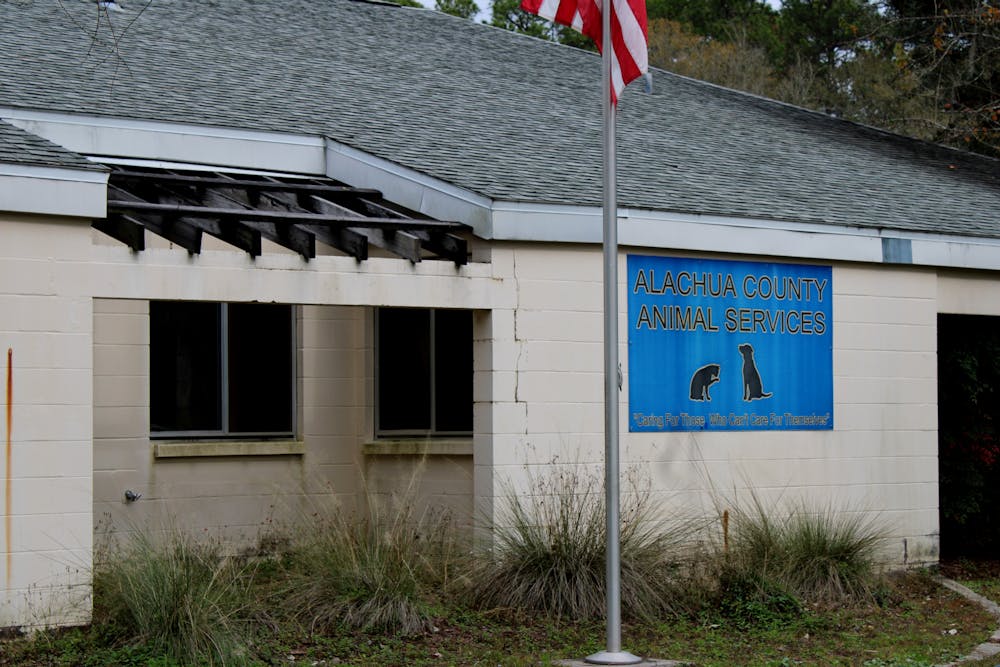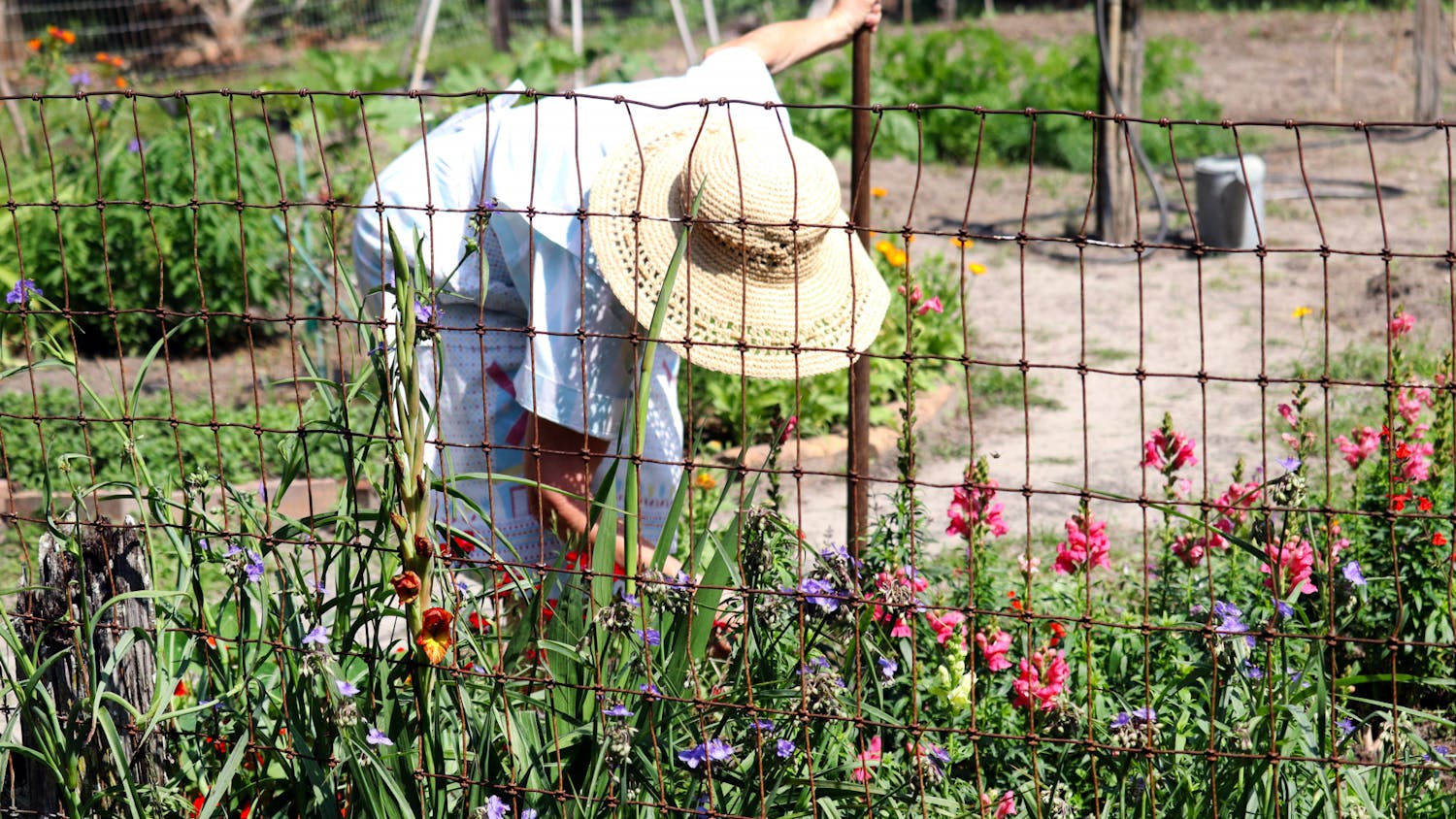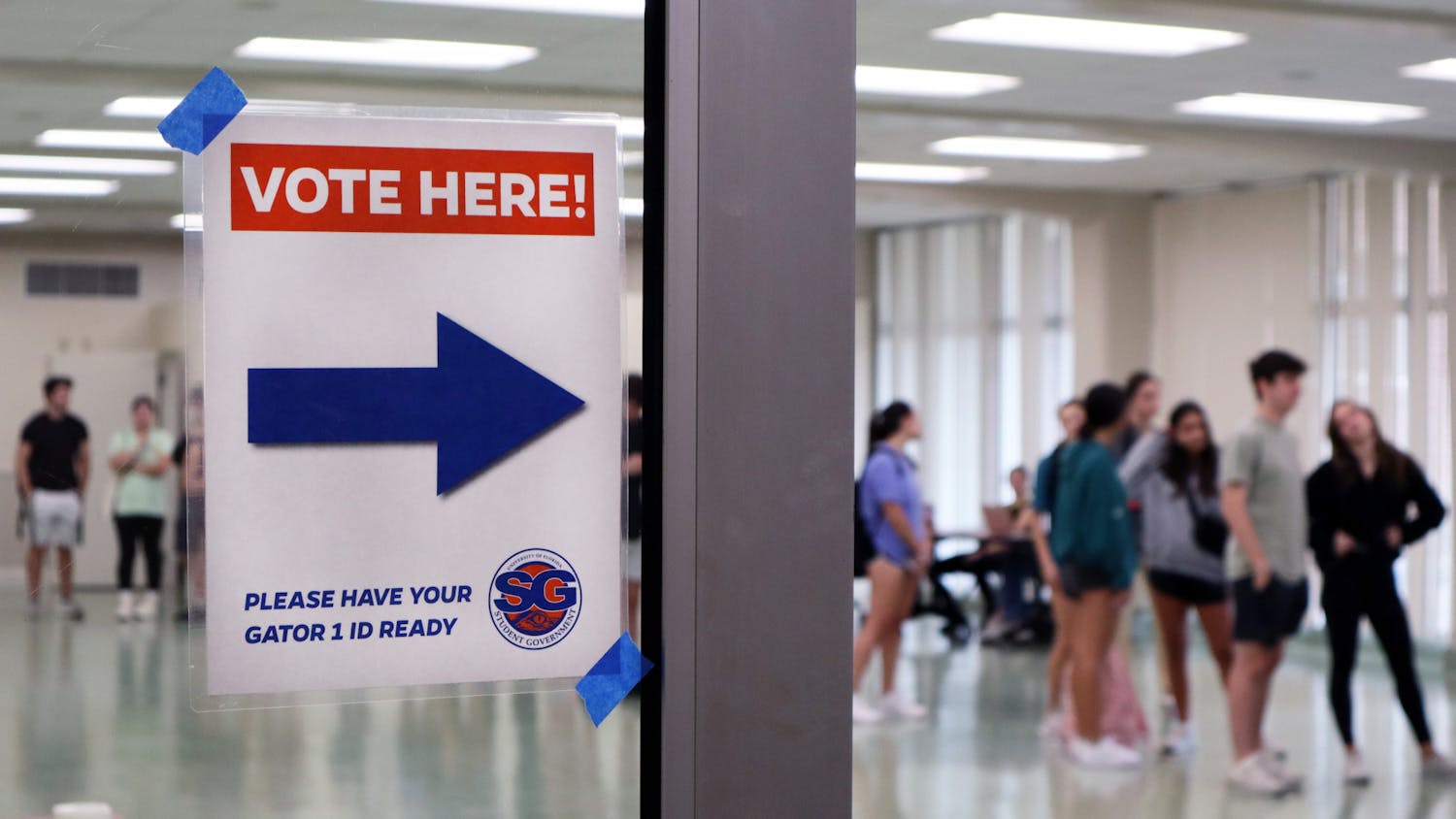The county-controlled animal shelter director stepped down after he testified in court as a witness for a Gainesville resident's alleged animal abuse.
Ed Williams spent five years as Alachua County Animal Resources and Care’s director, and volunteers spoke out about what they described as the toxic environment he created for both animals and people. He turned in his letter of resignation May 13 — a day after he testified for Loren Cava, a pet owner who received complaints about the treatment of her dogs for over a decade.
Neighbors claimed Cava, a 66-year-old Gainesville resident, was dragging her emaciated and malnourished dogs by their leashes while others heard cries from inside the home, according to 2021 affidavits.
Becky Goodman, a 47-year-old who is Cava’s neighbor and Alachua County Humane Society’s former executive director, had to stop walking her own dogs in the neighborhood because she feared crossing paths would rile the dogs up and further escalate the mistreatment from Cava.
Williams testified Cava was a fit pet owner and the current case against her is the only thing stopping her from adopting. Animal control officers were sent to Cava’s home numerous times, though Williams claims she has been compliant with the warnings provided by the shelter, complaints continued to roll in, according to the activity cards generated when citizens call in with a complaint to animal services. The officers reported Cava being unwilling to take their advice in regards to the treatment of her animals.
“We didn’t feel like the evidence that we had, the things that we could prove would be sufficient to gain a petition for custody for dogs much less ban her from any future ownership,” Williams said in his deposition. “That’s a pretty high bar.”
Court records claim Cava has brain damage and simply might not understand the severity of the situation.
Williams damaged the case when he resigned one day after claiming he would have no problem placing Cava’s dogs, Goodman said. But the blame for continuous mistreatment of these animals should not land on Cava or Williams, she said, but rather the policies put in place by the county.
Unlike private shelters like the Humane Society, the county shelter is obligated to take in all surrendered pets. This has led to overpopulation problems across shelters nationwide.
Alachua County Animal Resources and Care officials took in 21 animals from a single property in Micanopy two months ago following more than 200 counts of abuse.
“The rules that have been put in place are not there for the benefit of animals,” Goodman said. “The county has stripped the professionals from being able to execute their job duties.”
Emergency shutdown protocols should be followed to get the population under control, Dr. Cynda Crawford from UF’s Maddie’s Shelter Program said at a special meeting with the Board of County Commissioners regarding the future of Animal Resources and Care Tuesday.
There are a total of 56 dogs currently at the shelter that need an outcome before the population can be considered maintained, Crawford said.
Overcrowding is mainly due to the outdated shelter, County Manager Michele Lieberman said. Made in the 1980’s, the shelter was not designed to hold the 110 dogs and 17 cats it is currently taking in. The county budgeted for a new facility earlier this year.
“It was built at a time when the policy was euthanasia. It was never built to house an animal more than a week,” Lieberman said. “It is not built to contain disease. That's the sad reality.”
Margot DeConna, director of advancement for the Humane Society, spoke of the organization’s possibility to mend its relationship with the shelter and give the shelter another place to transfer animals when they are over capacity.
The Humane Society cut ties with Animal Resources and Care in 2019 in an effort to protect their own pet population after continuous distemper and other disease outbreaks at the county shelter.
Volunteers’ woes went beyond the facility’s state. They began when Williams first allowed the shelter to become overcrowded and blocked communication with the public and among the staff, former volunteer Loly Bouchard said. Staff members and kennel technicians quit, and volunteers resigned.
“I still maintain that he is the worst director that Animal Services had,” Bouchard, a 38-year-old Gainesville resident, said.
She volunteered at the shelter for 12 years until Williams let her, along with at least half the shelter’s volunteers, go in 2017. He said the adoption programs they were involved in were inactive.
“He fired me as a volunteer without even seeing my face or knowing anything of what I've done for the shelter,” she said. “It was very, very frustrating.”
Hilary Hynes, a 59-year-old Gainesville resident who worked for the shelter for 22 years, saw six different directors come and go. The role has been used as more of a political seat, she said, which has caused the director to be more out of touch with what’s actually going on in the shelter.
Williams’ last day was June 19. Staff was told he resigned for medical reasons. Williams declined to comment, but he can apply to a different position in the county, according to Deputy County Manager Carl Smart.
“I think that Ed is a hard worker,” he said. “He really cares about the employees and the animals out there and even the volunteers. I think that we will certainly miss him.”
When posting the director position June 10, the county changed its description to clarify duties, such as traveling to the scene of complaints.
The county has implemented an additional position called EVO — an acronym for education, volunteers and outreach. This coordinator will improve the shelter’s relationship with volunteers and provide them with an easy avenue for input, Smart said.
“I think that's been a missing ingredient,” he said. “A missing piece in the department that will give more attention to the volunteers.”
A panel will conduct interviews for the director position, but members of the panel have yet to be decided. Lieberman will make the final hiring decision.
The county’s attorney office planned a meeting after the holidays with Animal Resources and Care to speak to their new leadership team about changing ordinances and if necessary, Diana Johnson, Senior Assistant County Attorney, said.
“We can make sure that everything is still legal, that there's not any variants that are preventing them from progressively doing what they need to do and their grand ideas that they have,” Johnson said.
Contact Namari Lock at nlock@alligator.org. Follow her on Twitter @Namari_L
Namari Lock is a third-year journalism student and production staff member for The Alligator. She has previously worked as multimedia editor, opinions editor, graphic designer and as a general assignment reporter for the Metro desk. In her last semester at UF, Namari is making her Alligator Sports debut as track and field reporter.






